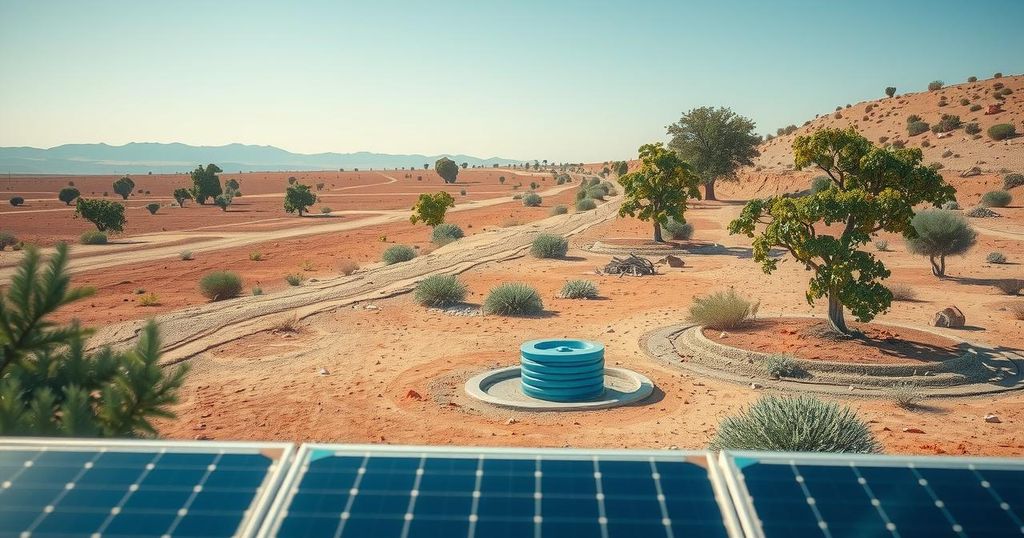This article discusses the adverse effects of climate change on water accessibility in Southern Zambia, emphasizing the increased vulnerability of rural populations. It highlights innovative solutions like solar-powered boreholes as critical to enhancing community resilience. The focus is on sustainable water management practices that support agricultural productivity and improve health outcomes, ultimately fostering greater quality of life for affected communities.
Climate change has led to a rise in droughts, floods, and extreme temperatures affecting global ecosystems and human societies. Rural populations, particularly low-income groups, are the most vulnerable, lacking resources to adapt to these changes. Drought diminishes agricultural productivity, increases poverty, and compels migration, with women and children shouldering the burden, especially in fetching water from distant and contaminated sources. Access to clean water is crucial for health, sanitation, and agricultural sustainability, yet many communities in Zambia face serious water shortages, intensifying during droughts.
The implementation of community-based initiatives like solar-powered boreholes offers a promising solution to mitigate the effects of climate-induced water scarcity. These technologies provide reliable water access independent of rainfall, enhancing resilience in rural communities. Efficient water management practices are essential for reducing vulnerability to climate extremes. Proper water supply not only supports farming but also significantly improves the quality of life and health in affected areas.
In Zambia, the challenges posed by climate change include decreased rainfall and increased temperatures, which have led to significant water resource losses and heightened competition for limited supplies. Rural communities often resort to unsafe water sources, compounding health risks. Long distances to secure water increase the physical toll on women and children, impacting their ability to pursue other livelihood opportunities. Therefore, it is crucial to invest in water infrastructure development collaboratively with local communities.
The recent establishment of a solar-powered borehole in the Hanzila community of Monze District exemplifies an effort to build local resilience through enhanced water management and availability. This initiative—launched as part of the ACTION Grant Program in partnership with local governmental organizations—aims to improve irrigation practices and support agricultural productivity during dry seasons. Such projects are vital in empowering rural populations to adapt sustainably to changing climate conditions and secure their livelihoods.
As climate change effects worsen, it becomes imperative to promote integrated approaches that support local communities in combatting water resource challenges. Educating communities about sustainable water management practices and investing in necessary infrastructure can aid in preserving these vital resources. Adequate water supply underpins public health and enhances economic activities, serving as a foundation for sustainable development and improved quality of life for present and future generations.
This article evaluates the impact of climate change on rural communities in Southern Zambia, outlining the vulnerabilities related to water access amid increasing drought conditions. It highlights the role of innovative solutions, particularly solar-powered water systems, as effective measures to enhance community resilience. The discussion includes the socioeconomic implications of water scarcity, especially among women and children who face additional burdens. It aims to provide insights into sustainable water management practices essential for improving living standards and agricultural productivity.
The integration of sustainable water solutions, such as the solar-powered borehole initiative in Hanzila, is vital for enhancing water availability and resilience against climate change. By developing community-led infrastructure and education, rural populations can better cope with the challenges posed by climate variability. Investing in such initiatives not only improves access to clean water but also strengthens the overall health and economic stability of vulnerable communities, contributing to more sustainable development outcomes.
Original Source: reliefweb.int







